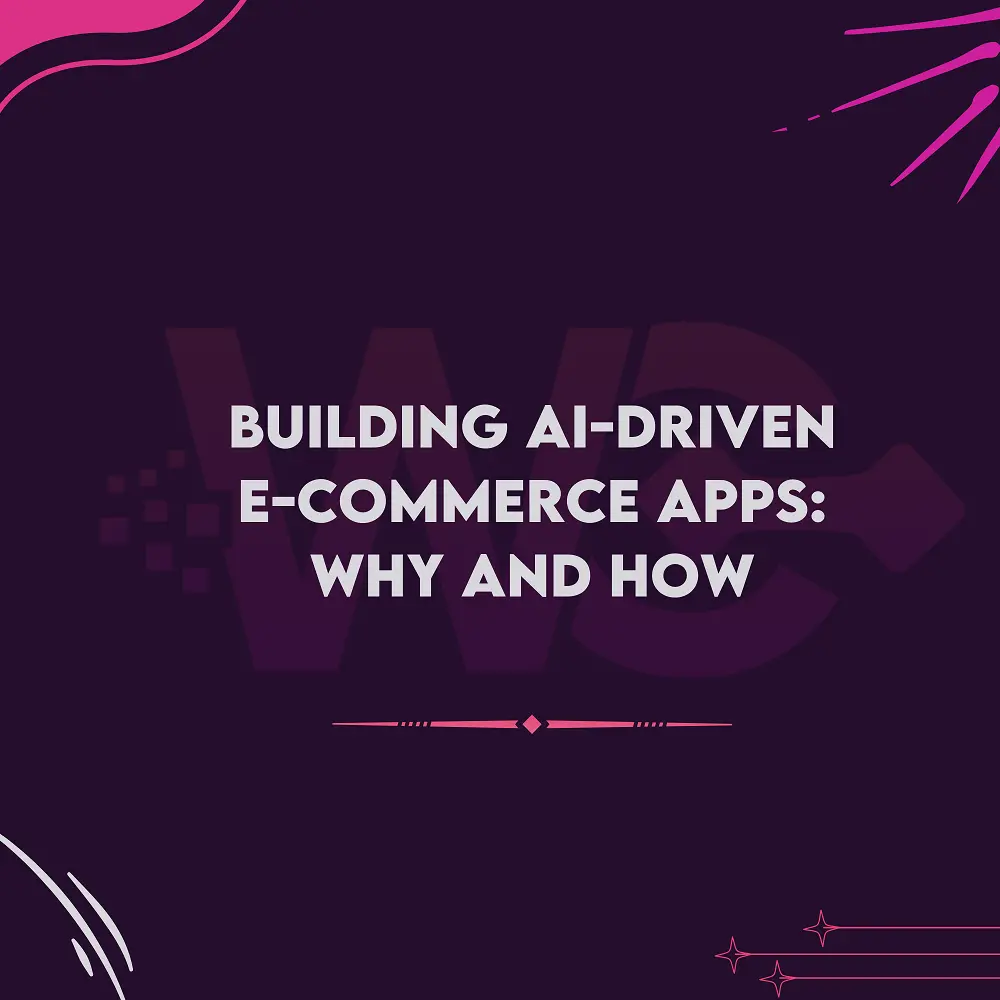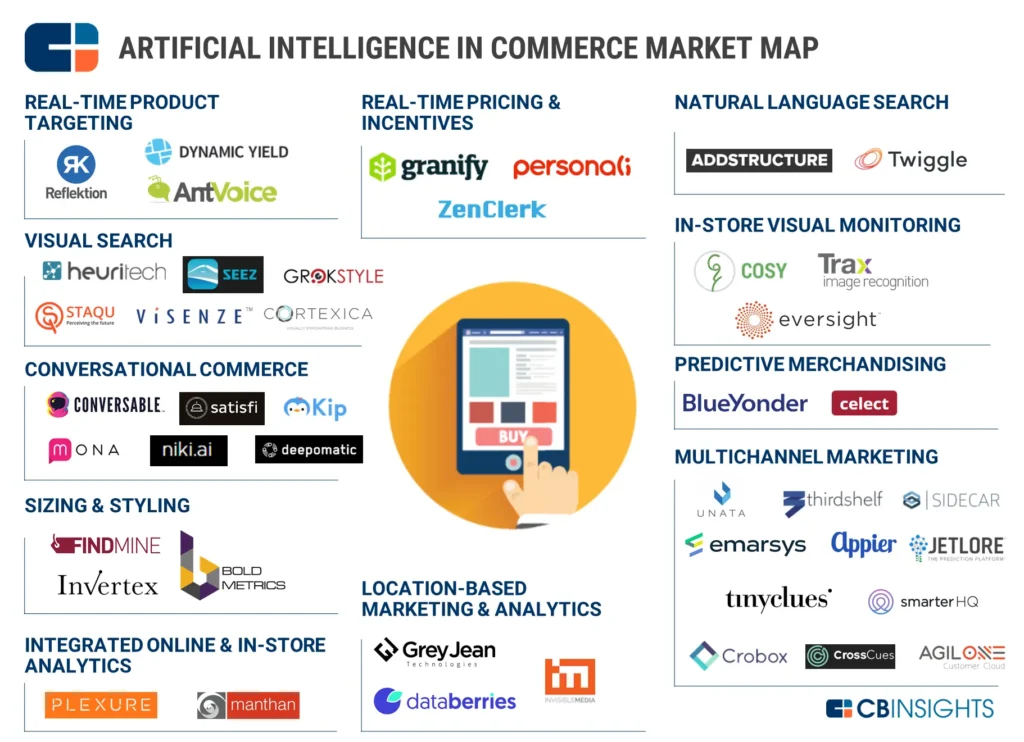

Today, e-commerce is blowing up, and AI is a game-changer for both businesses and shoppers. AI platforms can suggest stuff you’ll love based on what you’ve clicked on and bought before, which makes shopping more fun and easier for you. Similarly, they may automate such tasks as inventory management, order processing, and customer service inquiries, thus improving efficiency and eliminating hiccups within the shopping journey for customers.
These are actually the reasons for better conversion and customer engagement rates. As e-commerce businesses engage in the rampantly competitive landscape, the embracement of AI technology becomes a strategic tool to maintain the curve. Through the application of AI-based apps, retailers are able to get information about customers’ behavior, create more efficient marketing strategies, and design targeted experiences.
Whether it is a shop owner or someone who is tech-savvy, understanding how AI works in e-commerce gives advantages that could uncover a good number of exciting opportunities. Along with an array of AI-powered e-commerce solutions, we will find out how and why AI-driven e-commerce apps should be developed that can transform the way people do transactions in the future.
Developing AI App for E-Commerce
Brain Storming Ideas for App
Try to find out what customers want, what the market trends are, and where the gap is. This could not only be done by just viewing some statistics provided by any e-commerce online store about its own data; you have to do this activity with a team of experts, which enables you to figure out the concept of an application that seems to be the savior of existing and potential customers, then draft your vision document and finalize the application’s features.
Formulate Business Objectives
Define your business objectives and the impact of application development on your business objectives, i.e., what is your target audience, what do you expect to achieve once the app is introduced, how long before the first benefits are achieved, what’s the cash flow strategy, and is there a plan to move from Phase 1 to the next iteration?
Choose the Platforms
Decide the platform: iOS, Android, etc. As we all know, all these platforms have some limitations with respect to programming and regulations, so choosing an appropriate platform will help you remain compliant with evolving rules and technological advancements.
Make a List of Features
A few common features an e-commerce application has are sign-up, login, filtering, a search bar, order tracking, a shopping cart, a payment gateway, customer reviews, user accounts, loyalty programs, push notifications, and in-app messaging.
User Interface and Customer Experience
Designing an interface that is easy to use and attractive, taking some references from other applications, and having a good user interface will be a good step toward the survival of any e-commerce application primarily based on its user experience, i.e., a comfortable purchase journey.
Hire the Right Developers
You need to team up with the right folks, screen their portfolios, then discuss your project, tell them your expectations, and ask them what is applicable. It’s like assembling an Avengers team for your app—you need folks who know their stuff—designers, coders, testers, you name it—and if you’re looking for a crew that’s got mad skills in AI, we’re (Webicrafts) right here. We’ve got a team of experts with several completed projects; we can provide you with a one-window solution right from concept development to the final show.
Promotion and Launch
Nevertheless, marketing is necessary for running any business or application. Introduce your application to the right audience before launching. Firstly, focus on organic social media campaigns, such as making an account on Twitter, Instagram, and Facebook. Secondly, spend dollars to boost your marketing campaign, create hype for your business, and target the correct audience. Thirdly, work on public relations: issue press releases, post interviews with renowned personalities, and host online events. Lastly, hire those celebrities who are followed by your target audience and utilize their influence to introduce your application. After all these extensive pre-launch marketing activities, launch your application.
Quality Assurance and Performance Management
Hire a team that keeps up with maintenance activity for your application and, along with that, analyzes the impact of your marketing campaign, user interface, and user experience on client retention and generation. Your team should note the number of downloads, active users, engagement metrics, time spent in your app, in-app actions, CTRs, app opens per user, session intervals, etc. Take help from some tools to gain in-depth insights into user behavior and expectations.
Why AI E-Commerce Applications should be developed?

Efficient Marketing Campaign
With the help of AI, you can reach your target market in less time and at a lower cost. AI will create your customer profiles and run marketing campaigns accordingly, thereby increasing market reach and potential sales.
Customer retention
AI can help in retaining customers by understanding their behavior, analyzing their use of applications, the transactions they make, and the feedback they provide. AI can provide the ultimate user experience by optimizing the business and interface on a continuous basis with no time cost and running operations in the most efficient way ever before.
Analyzing Trends
AI can provide you with sales trends in real time and modify the user interface within no time accordingly for each customer profile separately, which will have a huge impact on your sales graph.
Conclusion
AI-driven e-commerce apps are revolutionizing the industry by providing efficient marketing campaigns, customer retention, and real-time analytics. These apps can suggest products based on user behavior and automate tasks like inventory management, order processing, and customer service inquiries, thereby improving efficiency and eliminating hiccups in the shopping journey.
As e-commerce businesses face competition, AI technology becomes a strategic tool to maintain the curve. You can market your application to your niche market in less time and cost by analyzing the demographics of social media users. Further, AI can give your customers the ultimate user experience by modifying the user interface based on usage history and giving a personalized experience to each customer.
AI can also provide real-time sales trends, allowing retailers to modify user interfaces for each customer profile, significantly impacting their sales graph. By understanding how AI works in e-commerce, businesses can uncover exciting opportunities and transform the way people do transactions in the future.











